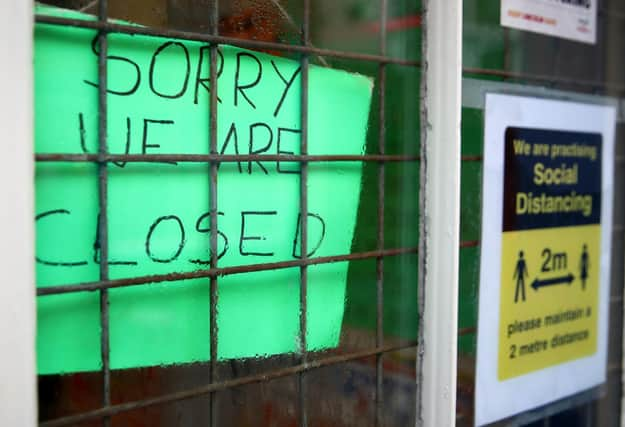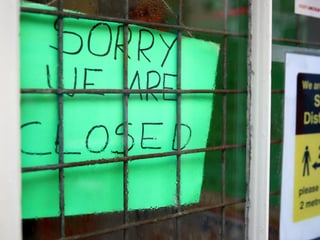End of lifeline support poses huge challenges for Scots firms, warns rescue expert


The warning came as figures showed the number of corporate insolvencies in Scotland fell below 2019 levels last year as measures such as the furlough scheme and emergency loans helped businesses hit by the pandemic to weather the immediate storm.
Analysis by KPMG shows that there were 466 company insolvencies in 2020, 25 fewer than in 2019. But Blair Nimmo, head of restructuring for the practice, said the statistics provide a “distorted view of reality”.
Advertisement
Hide AdAdvertisement
Hide AdHe said: “Those businesses that remain in hibernation due to ongoing lockdown measures, such as those in the leisure and hospitality and travel and tourism sectors, continue to accrue liabilities while seeing precious little cash flow into the business.
“At some point, rent and tax deferrals and loans will need to be repaid. The Job Retention Scheme will unwind. Weaning off these support schemes is going to be a massive challenge for many.”
Nimmo said the impact of the Brexit deal was also now being felt.
“There was certainly a collective sigh of relief when a Brexit deal was signed on Christmas Eve, with Scotland avoiding a damaging cliff-edge scenario. But as businesses now grapple with the realities of our new trading relationship, there inevitably will be some bumps in the road,” Mr Nimmo said.
He added that some sectors were seeing an immediate impact on cash and liquidity.
“There have been early signs of disruption across supply chains, particularly on roads and at ports as customs changes, increased paperwork and delays start to have a knock-on effect on both suppliers and those awaiting deliveries. This leaves some companies with the issue of having cash tied up in stock, unable to be dispatched to consumers, but with bills still to be paid and no obvious solution on the horizon.”
Nimmo also said 2021 is going to be about restoring customer confidence and consumer demand.
“The pandemic has encouraged businesses to focus on cash and liquidity alongside their profit and loss accounts – an excellent habit to have. This is fundamental for companies of all sizes as, if cash flow issues do arise, spotting them early and having enough time to deal with them is critical.”
A message from the Editor:Thank you for reading this article. We’re more reliant on your support than ever as the shift in consumer habits brought about by coronavirus impacts our advertisers. If you haven’t already, please consider supporting our trusted, fact-checked journalism by taking out a digital subscription: www.scotsman.com/subscriptions
Comments
Want to join the conversation? Please or to comment on this article.
